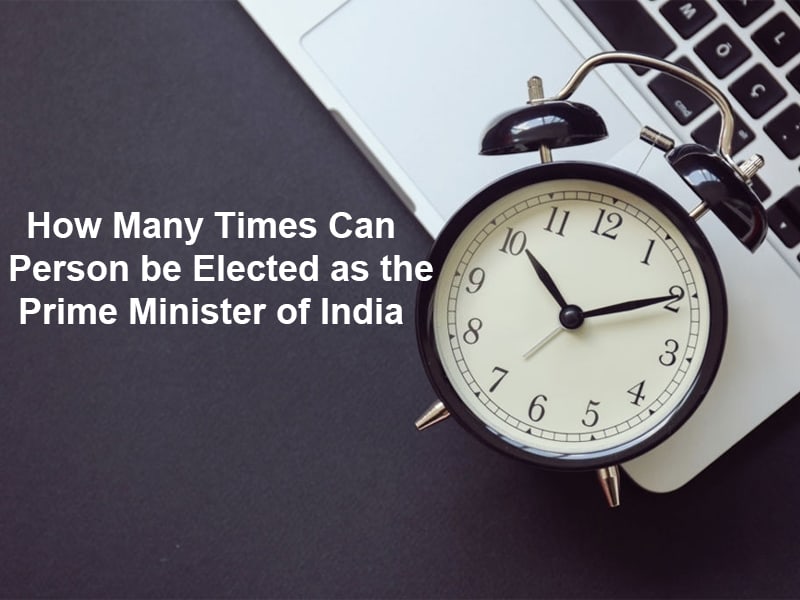Exact Answer: Unlimited Times (no restrictions)
There are no restrictions as to how many times we can elect the Prime minister in India. Meaning a person who contests the elections after every five years and heads the election, the representative can be selected as many times by their member of parliament.
India follows a westerner legislature system where when a party wins an election in the Lok Sabha or the lower house; the member can elect anyone as their Prime minister to head the country. The President of India swore the latest Prime minister.

How Many Times the Person Can Become PM of India?
India is a democratic country, meaning we, the people of India on our own, elect the leader who will run and represent the country for five years, and that person brings a promise to change the country. The Constitution of India states particular eligibility when a person can contest elections for the PM of India.
The person shall be a citizen of India, should be part of any house that is Rajya Sabha (the upper house) and Lok Sabha (the lower house). If not, they shall be appointed into any of the houses within six months and, most importantly, should be above the age of 25.
The election process in India is quite complex; therefore, when we vote for the party in India, we do not vote for a particular representative directly, but we do that indirectly.
Process of Elections
- After every five years, Lok Sabha elections are contested, where we vote for the particular political party irrespective of the representer. Every state has a different constituency; for example, Delhi has eight, whereas Uttar Pradesh has eighty.
- Lok Sabha consists of 545 seats where the people of India or us elect 543 through the general elections. Two are appointed by the President of India that represent India-Anglo seats.
- When we vote for the party, they are fed up in the system, and the party wins constituencies not from states but India as a whole, then the number of elected constituencies are counted for the party. To win, a party must maintain or win 272 seats in the Lok Sabha elections.
- Often, a single party may not be able to win as such 272 seats as a whole, then the play of coalition comes in, where major party teams up with several smaller parties so that the number becomes 272 seats are reserved.
- Here is the step where the elector thinks they vote for the representative, but they do for the party. Now, as the party wins the elections, they send the prime minister’s name to the President of India.
- The party or the coalited party represents their leader, who then becomes the country’s prime minister. The President does not have any intervention in the say, the President then swore the PM of India.
- The Prime minister then appoints cabinet ministers from the 272 members.
In Summary
| Parameters | Meaning |
| Houses | Rajya Sabha (upper house) and Lok Sabha (lower house) |
| Elections | They are held after every five years to appoint the PM. |
| Constituency | A party must secure the highest number of constituencies across the states of India. |
| Majority | Party must win at least 272 seats to secure the elections and set out to rule the country. |
| Coalition | If a party cannot secure 272 seats alone, they team up with many parties to ensure the election called an alliance. |
| Final Result | The party or alliance securing 272 seats elect their leader in the Lok Sabha, which becomes the PM of India |
The process of elections becomes clear why an Individual can become the PM of India unlimited times. Because it is the party we choose to elect, not the representative that heads the country, the PM is elected by the majority party. The party can select the same person for as long as they want until the time they win after every term.
Why Does the Person Become the Prime Minister Unlimited Times?
India is a democratic country where all the people above the age of 18 are given the right to vote and elect the Prime Minister.
The elections are held for Lok Sabha, where the highest winning party is at least 272 seats in the house. The highest winning party chooses its leader.
The same leader becomes the Prime minister of India; therefore, it is the party that we elect, not the leader. This is the reason why a person can become PM unlimited times.